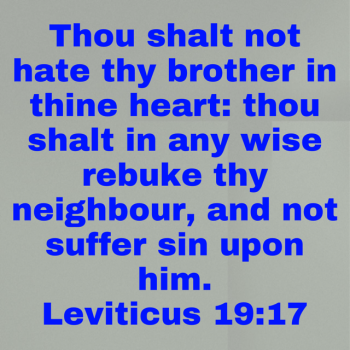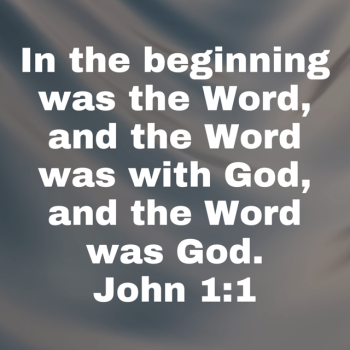In the beginning was the Logos, and the Logos was with God, and the Logos was God. (John 1:1)
Here are some thoughts to build on.
The concept of the Logos (Greek: Λόγος, "Word") is well-known from John 1:1 where it states, "In the beginning was the Word, and the Word was with God, and the Word was God." While this idea is explicitly linked to Jesus Christ in Christian theology, the roots of this concept can be traced back to Jewish thought and ancient rabbinical writings. However, the term “Logos” itself, a Greek philosophical term, is not used in Jewish texts; instead, the Hebrew term "Memra" (Aramaic: מֵימְרָא) serves a similar role in early Jewish exegesis. Here's how the Logos can be understood in connection with ancient Jewish thought:
1. The Memra in Targums (Aramaic Translations)
The term "Memra," which means "word" in Aramaic, was frequently used in the Targums—early Aramaic translations and interpretations of the Hebrew Scriptures. The Memra represents the divine Word, a distinct agent of God who acts in creation, revelation, and salvation. In several places where God’s interaction with the world is mentioned, the Targums often insert the "Memra" as the intermediary. This reflects a rabbinical understanding that God’s direct interaction with the world could be mediated through His Word.
Examples:
Genesis 1:27 (Targum Onkelos):
"And the Memra of the Lord created man in His likeness."
Exodus 19:17 (Targum Neofiti): "
And Moses brought the people out to meet the Memra of the Lord."
In these examples, the "Memra" acts almost as a divine agent in a similar way that the Logos does in John 1:1-3, where the Word is said to create all things. This demonstrates that Jewish thought already had an understanding of God's Word functioning as a creative and revelatory force.
2. Philo of Alexandria – Logos as Mediator
Philo of Alexandria (circa 20 BCE – 50 CE), a Hellenistic Jewish philosopher, was one of the most influential figures in the Jewish world who developed the idea of the Logos. Philo wrote extensively on the concept of the Logos, blending Greek philosophy (particularly Stoicism and Platonism) with Jewish theology. He described the Logos as the mediator between the transcendent God and the material world, a bridge between the infinite and the finite.
Philo viewed the Logos as the first-born of God, a divine reason or rational principle that orders and sustains the universe. For Philo, the Logos was not equivalent to God Himself but was rather a distinct aspect of God’s activity. He referred to the Logos as:
The "image" of God (cf. Genesis 1:26)
The first-born Son of God (prefiguring Christian language)
An intermediary between God and the world
The high priest who brings humanity closer to God
Philo's Influence:
Philo's writings predate the New Testament, and his understanding of the Logos as an intermediary might have influenced John's Gospel. While Philo's Logos is not personal in the same way that Jesus is, the conceptual parallels are striking. Philo emphasizes the Logos as the rational principle by which God interacts with and sustains the universe, much as the New Testament portrays Jesus as the divine Logos through whom all things were made (John 1:3).
3.
The "Dabar" in the Hebrew Scriptures
While Logos is a Greek term, its Hebrew counterpart in Jewish tradition is Dabar (דָּבָר), which also means "word" or "speech." In the Hebrew Bible, Dabar is
more than just spoken words; it often represents the active and powerful Word of God that brings about His will. This understanding closely parallels the concept of the Logos as a divine agent.
Examples of Dabar as an active force:
Creation: Psalm 33:6 (NKJV), "By the word (Dabar) of the Lord the heavens were made, and all the host of them by the breath of His mouth." Here, God’s Word (Dabar) is the active agent in creation, reflecting the idea that the Logos is the Creator.
Revelation: The prophets frequently describe the Dabar Yahweh (Word of the Lord) as coming to them. It was through this Word that God revealed His will to His people.
In Isaiah 55:11 (NKJV), God’s Word is described as something that accomplishes what He desires:
"So shall My word be that goes forth from My mouth; It shall not return to Me void, but it shall accomplish what I please, and it shall prosper in the thing for which I sent it."
This active, creative, and purposeful Dabar reflects the Logos as an eternal force through which God’s will is enacted.
4.
The Angel of the Lord – A Theophany of the Logos?
In many Jewish writings and commentaries, the "Angel of the Lord" was seen as a mysterious and sometimes divine figure who speaks on behalf of God, often using God’s own words in the first person. Some rabbis viewed this Angel not as a mere messenger, but as a manifestation of God's presence, which has led some scholars to see this as a precursor to the Logos.
Examples:
Exodus 3:2: The Angel of the Lord appeared to Moses in the burning bush and spoke as God, saying, "I am the God of your father, the God of Abraham, the God of Isaac, and the God of Jacob."
Genesis 22:11-12: The Angel of the Lord stops Abraham from sacrificing Isaac and speaks directly as God: "Now I know that you fear God, since you have not withheld your son, your only son, from Me."
These appearances suggest a kind of divine mediation, akin to the Logos in John 1:18, "No one has seen God at any time. The only begotten Son, who is in the bosom of the Father, He has declared Him."
5. Rabbinical Writings and the Wisdom Literature
In Rabbinic Judaism, while the term Logos is not used, the notion of divine wisdom (chokmah) being a creative agent or intermediary is often present. Wisdom literature (such as Proverbs, Ecclesiastes, and the apocryphal Book of Wisdom) personifies wisdom in a way that bears similarities to how John’s Gospel speaks of Christ as the Logos.
Proverbs 8:22-31:
Wisdom says, "The Lord possessed me at the beginning of His way, before His works of old... I was beside Him, as a master craftsman."
This portrayal of Wisdom as a pre-existent entity involved in creation parallels how the Logos is depicted in John 1:1-3. The rabbis understood wisdom as something intrinsic to God, but some later interpretations, especially in Christian thought, see this wisdom personified in Christ.
While ancient rabbinical writings do not explicitly reference the Greek term Logos, they contain many concepts that resonate with the New Testament's portrayal of Christ as the divine Word. The Memra of the Targums, Dabar in the Hebrew Scriptures, and the personified Wisdom of Proverbs all reflect a Jewish tradition that God’s Word or Wisdom is not just a spoken entity but an active, powerful agent of creation and revelation.
The Logos in John’s Gospel can be seen as building upon these Jewish theological concepts, with Philo’s Logos as a philosophical intermediary and the Memra and Dabar as a divine, creative, and revelatory force. In Christian thought, the Logos ultimately becomes fully personified in Jesus Christ, who is seen as the eternal Word made flesh (John 1:14), revealing God to the world.
Our ministry, ONE FOR ISRAEL, is a movement of Jewish and Arab Israeli followers of Jesus with a commission to reach their country and the nations with the Gospel. We see our call to equip believers in Israel and around the world with the tools of ministry through our media outreach, and to...

www.oneforisrael.org
J.






